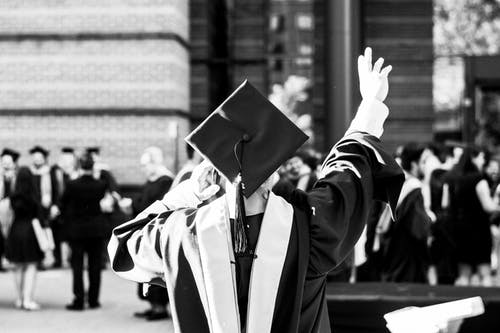Spring has finally arrived on campus, and graduation exercises are in full swing.
It is a wonderful time with students dressed in black caps and gowns and their parents dressed in formal attire. Everyone is smiling as the graduates mount the stage to receive their degrees, shake a few hands, and step into the real world leaving the comfort of the so-familiar university behind.
There are uplifting speeches from honorary degree recipients with some fine messages about causes as noble as fighting climate change or overcoming systemic discrimination.
Even if students listen to lies, no one really cares. It is spring, there are no more classes, and a new life-chapter lies ahead.
Yet, the less than honest commencement addresses will probably twig some students to suspect they have not been well-educated.
The truth is that over the last 50 years, universities have increasingly watered down the requirements for many of their degrees. No longer are most students taking courses that give them a good understanding of the fundamentals of Western Civilization. No longer are they learning the principles of liberalism and the traditions, as Matthew Arnold once stated, of “the best which has been thought or said.”
Most students do not realize how lucky they are to live in Canada, one of the fairest and freest countries in the world. What they believe instead – instilled tirelessly by their professors – is that Canada is a racist and sexist society that has failed to reach equality or achieve social justice towards its minorities, especially its Indigenous people.
High-quality education based on the key principles of scientific objectivity and reasoning is less and less a value in Canadian university education.
Take teacher education as a case. Sixty years ago, teachers were expected to be well-versed in a number of core disciplines. Unfortunately, many of those courses have been dumped.
Now, teacher education programs across the country are “anything but knowledge” cafeteria-style offerings. There is no core, no structure, and no coherence. Teachers are allowed to dip into any number of modern and post-modern subjects without much, if any, real knowledge, critical, or rational thinking.
Two recent examples illustrate this modern trend.
On December 6, 2018, the Faculty of Education at the University of Manitoba published a news item entitled “Educators working on the front lines of building a better world” that stated:
“It is not hard to spot a new faculty member, Dr. Joe Curnow. Depending on what she’s teaching in class that day, you’re as likely to see her carrying protest signs in the faculty hallways as you are textbooks. ‘We’re really teaching and thinking of pedagogy as a practice of freedom,’ Curnow says, adding that she draws on her background as a social-movement organizer and antiracism educator to help us find ways of engaging in work for social justice that impacts not only our classrooms but also our communities more broadly.”
The second telling example was published in University Affairs on May 14, 2019, and was titled “How a master’s thesis is pushing the boundaries of scholarship.” The author was a graduate student.
The graduate student wrote a graphic autobiographical “novel” with hand-drawn cartoons on every page. Moreover, when she defended her “thesis,” another student from a local school provided accompaniment on a ukulele.
In these two examples—and many more—the focus is on the idiosyncratic interests of people and not on coherent and developed scholarship in its true sense. In the graduate student’s words, “To talk about teaching like it’s not about who you are, that’s like, get a grip.” So, self-expression, no matter how off-the-wall, is the true nature of modern teacher education.
Rather than ensuring that future teachers understand the “scientific basis of the art of teaching,” faculties of Education are now rewarding people for supporting their pet projects and their unique individual pursuits. It is not scholarship that is on display, it is self-centred interests that relate to little.
The trivialization of teacher education has spread across the country and the student teachers this cafeteria-style pedagogy has produced are now populating our local schools, imparting these shabby values to our children.
When will universities wake up and realize that some faculties and programs are undermining their core mission, those promises which universities said they would give to their students—a worthwhile and well-rounded education aimed at helping them follow Plato, Aquinas, Montaigne, and Pascal in examining their lives critically and contributing constructively to Canadian society?
When will taxpayers realize that they are supporting irresponsible institutions that allow faculties, like Education, Indigenous Studies, and Woman Studies to push pseudo-scientific dogmas and nurture divisive grievances and identity-politics, while pretending they are preparing students for a good life in a first-world country?
When will graduation speakers call attention to the way universities are failing their students and failing Canadian society?
XXX
Rodney A. Clifton is an Emeritus Professor at the University of Manitoba and a Senior Fellow at the Frontier Centre for Public Policy. Masha Krylova is an M.A. student at the University of Manitoba and Research Assistant at the Frontier Centre.



